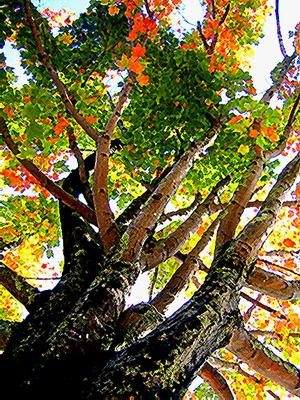All Nonfiction
- Bullying
- Books
- Academic
- Author Interviews
- Celebrity interviews
- College Articles
- College Essays
- Educator of the Year
- Heroes
- Interviews
- Memoir
- Personal Experience
- Sports
- Travel & Culture
All Opinions
- Bullying
- Current Events / Politics
- Discrimination
- Drugs / Alcohol / Smoking
- Entertainment / Celebrities
- Environment
- Love / Relationships
- Movies / Music / TV
- Pop Culture / Trends
- School / College
- Social Issues / Civics
- Spirituality / Religion
- Sports / Hobbies
All Hot Topics
- Bullying
- Community Service
- Environment
- Health
- Letters to the Editor
- Pride & Prejudice
- What Matters
- Back
Summer Guide
- Program Links
- Program Reviews
- Back
College Guide
- College Links
- College Reviews
- College Essays
- College Articles
- Back
Taking Root: The Vision of Wangari Maathai
Directed by Alan Dater and Lisa Merton, the film “Taking Root” is about a single woman’s quest to better her country by planting trees, despite oppositions from her government. An advocate for civil rights and democracy, Wangari Maathai is proof that grassroots organizations can make a difference.
In the mid-70s, Kenyan women were complaining that there was not enough water or firewood for their homes and their children were not getting enough to eat. They had spent their money on cash crops such as coffee and tea. It was finally suggested to the women to plant trees. Trees purify the air, bring rain, and when the leaves fall, the soil is held down no matter how much it rains.
Raised in rural Kenya, Maathai learned at an early age to appreciate the environment and all it has to offer. In 1960, she went to University in the United States and received her PhD in Biology; she was the first woman in East Africa to earn PhD. Six years later, she returned to Kenya and got married. In 1977, Maathai founded the Green Belt Movement, which works to improve the living conditions of Kenyans and to use the natural resources in an efficient manner.
When the Europeans came to Kenya in 1902, conflicts arose between the two groups and the Europeans dominated the Kenyans by destroying their culture and taking advantage of the natural resources. Colonization took place for the next few decades---Kenya was referred to as “Britain’s youngest and most attractive colony.” The Mau Mau Crisis was the first force of action the Africans made against the British; for the next five years, the Kenyans would live in camps, fearful of their survival.
In 1978, after Prime Minister Jomo Kenyatta died, President Moi rose to power. The film explained how Moi came to power; he appeared out of nowhere and was later seen as a rising dictator. Moi was greatly opposed to Wangari Maathai, accusing her of not being an African woman, which in tradition means to respect men. By this time, Maathai was already viewed as a “condemned woman” after her divorce--something seen as immoral in Kenya. She now was labeled as a traitor, violating the traditions.
What most people did not realize is that the Green Belt Movement was a turning in Kenya’s history. She made Kenya internationally recognized by First World countries like the United States and Japan, making a local problem shine in an international spotlight. Maathai led meetings, protested the destruction of a public park, and went on strike for the release of unfairly imprisoned men at Freedom Corner, Uhuru Park.
Today, over 35 million trees have been planted in Kenya. For all of her efforts and success with the Green Belt Movement, Wangari Maathai was awarded the Nobel Peace Prize in 2004. Wangari Maathai is an important figure in African history---she is proof that an individual can change so much for the masses. She has paved the way for other African women to rise up and take control of their homelands. Unfortunately, Wangari Maathai passed away in September of 2011---she will be dearly missed. However, Maathai’s story has an illuminating effect on people and will continue to inspire future generations.

Similar Articles
JOIN THE DISCUSSION
This article has 4 comments.
